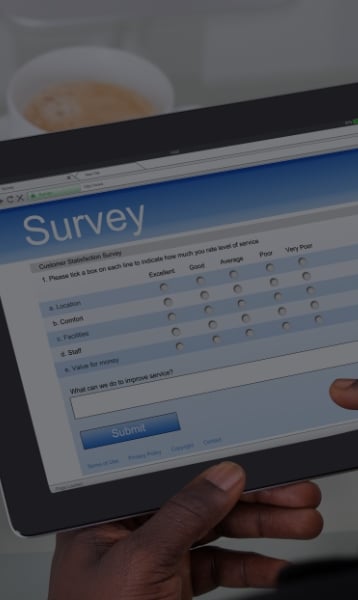The benchmarking portal gives you access to all reports available for STD, LTD, FML & WC.
IBI 2019 Agenda

Marshall Riddle
As we begin the new year, we would like to highlight the agenda that IBI’s Board of Directors and staff have created for 2019.
Please let us know if you have any questions or would like to discuss any of our initiatives. We look forward to working with you this year.
Research on critical areas of health and productivity
IBI’s research will address a wide variety of important topics, including: (1) impact of consumer-driven health plans (CDHPs) on workforce productivity, (2) misuse of and dependence on opioids and other substances and implications for workforce productivity, (3) downstream issues of total leave management, (4) linking health outcomes to business performance, (5) organi-zational culture and employee health engagement, (6) healthcare challenges for lower-wage workers, and (7) how employers can best use patient-centered research.
More accessible benchmarking and modeling tools
IBI will implement new technology and increase metrics sets in 2019 to expand the value of our industry-largest benchmarking program and models. In addition, we will continue to analyze key topics of interest through the claims-level experience represented in our database to produce practical insights for our members.
IBIBridge will provide a new way for employers to learn from each other and gain insights from subject-matter experts
IBI’s newest program is built on a novel technology platform that will allow employer members to connect with peers on common issues so that they may learn from the experience of their peers. The platform also provides confidential access to a broad range of subject-matter experts from the IBI solution-provider community to help provide additional insights and identify realistic and effective solutions. The program is being piloted early in the year with six leading employer healthcare collations and will be rolled out to the entire membership later in 2019.
A new national conference partnership and expanded engagement opportunities
IBI is partnering with the Conference Board on a new national health and productivity conference to be held in Chicago in September. Conference and session sponsorship opportunities will be available, as will exhibit space. Additionally, IBI will hold four regional programs across the country. The first regional program will be held on February 12 in Washington DC in conjunction with the Patient Centered Outcomes Research Institute. The program will focus on how employers use health and healthcare evidence in decision making and will feature panels of employers, provider/practitioners and policymakers. IBI also will host a new webinar series on IBI research reports and will expand IBINext offerings for emerging leaders in the health and productivity field.
Read more about forum and communications
2019 IBI Research Agenda
1. Impact of consumer-driven health plans (CDHPs) on workforce productivity
The promise of CDHPs to insurers and employers is that enrolled employees will accrue lower health care costs by using fewer services that are not indicated for a condition or that deliver only marginally better results than lower-priced alternatives. The risk is that employees will reduce utilization in ways that increase long-term health care costs, such as forgoing preventive and diagnostic services or putting off treatment until complications arise. The result could be both higher medical and pharmacy spending and lower productivity – i.e., more illness-related absence and disability and lower on-the-job performance. IBI is in discussion with a Board member organization to access data in support of analyses of cost-sharing, utilization, and lost work time. The findings may also bear on questions about the challenges facing lower-wage workers.
2. Misuse of and dependence on opioids and other substances: implications for workforce productivity
Opioid misuse and dependence have emerged as one of the most challenging public health crises. This project will finalize preliminary analyses of Department of Health and Human Services survey data to raise awareness of opioid and other substance misuse as an urgent public health issue with particular productivity implications for employers. Substance abuse management best practices compiled from member experts will provide a checklist of considerations for employers, their supplier partners, and providers in occupational health.
3. Total leave management
This project will look at the downstream, unintended impacts of leave management on patterns of treatment, health/well-being and productivity. A key issue is whether adopting policies (voluntarily or otherwise) for one category of leaves (e.g., parental leaves) imposes additional work responsibilities or stressors on other co-workers, increasing their risk for healthcare utilization, absences, turnover, or performance impairment. Barriers to the use of available leave and subsequent utilization of EAP and other support services (and whether these mitigate workplace issues), and the changing demands for leaves as the workforce ages will also be considered.
4. Linking Health and Productivity to Business Outcomes
IBI is working with a Board member to identify employers for a qualitative study of how companies establish linkages between workforce health, productivity and the performance of their business. The goal is to produce an IBI publication offering
guidance on making the business case for efforts to promote a healthy, high-functioning workforce. Of particular interest is how personnel responsible for the H.R., benefits, and employee medical functions identify, understand, and link health and productivity information to the operational metrics used by top leadership. Topics covered will include the use of operational metrics in evaluations of health and productivity initiatives (and the challenges in doing so), the types of data and reporting used to assess workforce health (including health engagement), productivity, the effectiveness of corporate health and productivity initiatives, and examples of strategies used to minimize operational disruptions caused by employee absences.
5. Organizational culture and engagement
This project will address different aspects of employee engagement, in the conventional sense of job commitment/satisfaction and in the sense of employees' take-up or participation in employers' benefit programs. Specifically, the project will look at the relationships between job and benefits engagement, downstream health and healthcare utilization, and workplace culture and other personal and environmental characteristics.
6. Healthcare challenges for lower wage workers
This project will look at issues of disease burden, access to quality care, and health care and lost productivity costs among lower wage workers. In addition to descriptions of outcomes for different socioeconomic groups of employees, the project will examine how employer policies such as benefit design and HR/health and productivity strategies influence lower wage workers' treatment, health and well-being, and productivity outcomes. It will also explore the evidence for whether benefit structure changes can lead to better treatment, health or productivity outcomes.
7. How employers can best use patient-centered research
The Affordable Care Act provides funding to the Patient Centered Outcomes Research Institute (PCORI) to financially support a variety of research projects on patient-centered healthcare. IBI is working with the National Alliance for Healthcare Purchaser Coalitions under a PCORI grant to better understand how employers can more effectively use patient-centered research to help employer improve a healthier and more highly performing workforce
2019 Benchmarking/Tools Agenda
1. Implement new benchmarking reporting platform
IBI will implement a new technology platform for IBI benchmarking to replace industry summary reports and the Database Query tool. The new reporting platform will support a focus on the visual display of results, provide additional filter options beyond industry code and allow users to alter/run reports in real time and on mobile devices. IBI is currently evaluating four potential reporting platforms for implementation prior to the next reporting cycle (Summer of 2019).
2. Produce additional workers’ compensation metrics
IBI will continue to work with the Benchmarking Advisory Group to define new workers’ compensation metrics that best serve our members. When IBI revised its workers’ compensation reporting in 2016, we shifted from a single-year focus to a multi-year focus in order to provide a five-year claims experience view during each annual reporting cycle. After soliciting feedback from report users and Benchmarking Advisory Group members, we have begun working on a second set of workers’ compensation metrics that focus on calendar year experience. Implementing these new metrics will allow IBI to provide results from both reporting perspectives moving forward.
3. Finalize supplemental STD, LTD and FMLA data tables
IBI is working with the Benchmarking Advisory Group on a set of supplemental data tables that can be easily integrated into our members’ internal client reporting systems. These supplemental data tables stratify results by many factors beyond SIC code (the primary focus of our Industry summary reports). Additional cut points will include location, employer size, plan design components, claimant wages, insurance type, ICD 10 diagnosis, reason for leave and claimant demographic information.
4. Expand IBI Data Consortium
IBI has identified three potential additional sources of workers’ compensation claims data as well as two potential additional sources of FMLA leave data. Our 2019 goal is to add at least one additional data source for each program.
5. Continue monthly IBI Benchmarking Analytics report series
IBI will continue to produce monthly reports that draws upon the questions frequently posed to us by members and highlights the capabilities of IBI’s disability and leave benchmarking database. Reports analyzing the impact of employer size on disability outcomes, the impact of lag time in reporting on workers’ compensation claims costs, and a multi-year analysis of the diagnoses driving disability claims are in development, with additional topic areas being discussed internally.
6. Continue Health and Productivity Impact of Chronic Conditions (HPICC) series
To date, IBI has produced reports showing the combined treatment, sick day, and disability costs for five chronic health conditions—for the U.S. workforce as a whole and for major industrial sectors. With financial support from a Board member company, we are currently developing a report with updated costs for low back pain and a new report on osteoarthritis. Reports on additional conditions will be released to coincide with members' interests and in response to events of larger economic or social significance.
7. Re-issue Leave Management Benchmark surveys to support reports on specific types of leaves
IBI concluded its first round of Leave Management Benchmark analyses with the release of nine reports on various leave policies. Over 1,000 employers responded to the leave management survey, which combined questions about nine leave types. IBI will follow-up on the original reports with stand-alone surveys for the separate leaves. The order of the surveys will reflect the popularity of the original topics, beginning with maternity and parental leave policies.
8. Explore technology platform for new interactive modeling tool (Diagnosis Analyzer)
IBI will continue its efforts to support members' interests in disability outcomes models at greater levels of diagnosis detail. Using Benchmarking claims from 2011 to 2017, we have developed a prototype Diagnosis Analyzer that models short- and long-term costs for disability incidents at the 3-character ICD-9 and ICD-10 levels. The prototype tool and report will be demonstrated for supplier members in early 2019. Pending member interest in an online, interactive tool, IBI will explore the feasibility of a variety of technology options for implementation.
IBI Bridge
The Challenge. The complexity of managing workforce health/wellbeing, medical/pharmacy care, absence, and lost productivity -- and the data related to these components -- has become increasingly challenging for employers. Employers can gain valuable insights from others on these issues, but rarely have the opportunity to connect across the country with colleagues from inside and outside of their industry trying to solve the same problems. At the same time, employers often aren’t aware of the expertise available to help them more fully understand the complexity and dimensions of their issues nor of the market solutions that can support their interventions.
The Opportunity. The Integrated Benefits Institute, the country’s leading nonprofit research and analytic organization focused on health and productivity, is developing IBIBridge to help employers overcome these barriers.
IBIBridge will connect employers to peers through a private technology platform developed by IBI to explore strategies, insights, experiences and solutions organized around the key issues that they have in common. Participating employers also will have access to direct responses to their most pressing questions from leading subject-matter experts from IBI’s broad solution-provider membership, spanning all parts of the health and productivity landscape.
The Process. IBI staff will provide ongoing moderation of the platform to assist groups with relevant questions and topics. Employer questions will be posted in a separate forum for subject-matter experts to review and respond. Experts’ answers will be available to employers to read and comment upon, with the additional option to indicate interest in further discussion and be connected directly to the respondent to discuss the issue and available solutions. Because each employer issue will invariably touch the four components of the program – health/wellbeing; medical/pharmacy design and care; absence/performance/ productivity; and data/metrics – subject-matter experts in all four areas will respond to employer questions. This will help provide a more holistic approach to the issues. Engagement will be ongoing and facilitated by IBI staff through posting of content and questions to jumpstart conversations among employers.
Employer users will have their information masked, showing only their industry, organization size and job function and solutions providers will not be able to contact employers unilaterally. Once an employer user takes the steps to reach out and directly message a solutions provider, the identity of both individuals will be available to the other. Solution-provider information also will be available for employers to view so that employers may initiate contact when they see an opportunity to partner based on solutions provider answers to questions and the solutions they provide. Solution provider user profiles will list the solutions their organization provides (scope limited by IBI membership level), as well as the individual expertise of the specific user. Subject-matter expert responses to employers will not be viewable by other subject-matter experts.
Feed updates will be automatically provided to users to keep them abreast of activity in the forum. The portals also will be mobile-optimized.
The Outcome. In addition to helping employers connect on common issues and engage with subject-matter experts, market insights from IBI analysis of discussions will be an important outcome from this platform. Issues and responses will be tracked by IBI and will be easily segmented based on the demographic data users provide for research and analysis purposes. IBI will be able to identify the issues and trends that get responses from different industry segments and job functions while keeping individual employer identities confidential.
2019 Forum, Communications and Engagement Agenda
1. Partner with Conference Board for Fall 2019 health and productivity conference
As part of the planning process for the 2019 joint IBI-Conference Board event, IBI has provided information to the Conference Board on past Forum attendance, sponsorship offerings and uptake, program content and scheduling, revenue and expense breakdowns, and attendee survey responses and additional feedback. The 2019 conference will be a departure from the traditional IBI Forum format as we move to a more traditional conference featuring a mix of sponsored and unsponsored speaking sessions and an exhibit hall.
2. Implement IBIBridge
IBIBridge will be piloted with six employer healthcare coalitions early in 2019, and subsequently rolled out to the full IBI employer and supplier membership later in 2019.
3. Hold four regional briefings across the country
The first 2019 regional event will be a joint event with the Patient-Centered Outcomes Research Institute set for February 12, 2019 in Washington DC. We are currently in discussions with the Pacific Business Group on Health to co-host a West Coast event later in the year. The two other regional meetings will likely be held in partnership with IBI supplier members.
4. Increase IBINext membership and hold four events in 2019
IBINext membership grew by 66% from its inception in 2018 and we are targeting an additional 50% growth in membership in 2019. The next IBINext event will be attached to the February joint program with the Patient-Centered Outcomes Research Institute and an additional event will be attached to the 2019 joint IBI-Conference Board conference in the Fall. Two additional mid-year events are being planned as well.
5. Host monthly webinars on 2019 research reports and employer case studies
Develop the following collateral for IBI products released in 2019: a press release (when appropriate); webinar; brief tips sheet and accompanying blog post for benefits professionals; and an infographic of the main message. The goal of this content development strategy is to enhance the usefulness of IBI’s work for employers and give supplier members the opportunity to bring their expertise to bear in providing practical guidance to employers.
6. Increase educational focus on employer data fluency/tool use
IBI will develop additional webinars, video tutorials, targeted blog posts and regional program and conference content to facilitate employer understanding of data and how to best leverage data to make an internal impact in their organizations.
- February 2025 (1)
- December 2024 (2)
- March 2024 (1)
- January 2024 (1)
- October 2023 (3)
- September 2023 (1)
- July 2023 (1)
- May 2023 (1)
- April 2023 (1)
- February 2023 (1)
- January 2023 (1)
- December 2022 (1)
- November 2022 (1)
- October 2022 (1)
- September 2022 (1)
- August 2022 (2)
- July 2022 (1)
- June 2022 (3)
- May 2022 (2)
- April 2022 (1)
- March 2022 (2)
- February 2022 (1)
- January 2022 (1)
- December 2021 (1)
- November 2021 (1)
- October 2021 (1)
- August 2021 (1)
- July 2021 (2)
- June 2021 (1)
- May 2021 (1)
- April 2021 (1)
- February 2021 (1)
- January 2021 (3)
- August 2020 (1)
- July 2020 (3)
- May 2020 (1)
- April 2020 (4)
- March 2020 (4)
- February 2020 (1)
- January 2020 (1)
- November 2019 (2)
- July 2019 (4)
- June 2019 (3)
- May 2019 (2)
- April 2019 (2)
- March 2019 (3)
- February 2019 (7)
- January 2019 (9)
- November 2018 (6)
- October 2018 (3)
- September 2018 (3)
- August 2018 (2)
- July 2018 (4)
- March 2018 (22)
- February 2018 (1)
- October 2017 (1)
- September 2017 (1)
- August 2017 (1)
- July 2017 (1)
- June 2017 (3)
- May 2017 (2)
- April 2017 (1)
- March 2017 (29)
- February 2017 (1)
- January 2017 (1)
- December 2016 (3)
- November 2016 (2)
- October 2016 (1)
- August 2016 (3)
- May 2016 (2)
- April 2016 (8)
- February 2016 (29)
- January 2016 (1)
- December 2015 (2)
- July 2015 (4)
- June 2015 (6)
- May 2015 (1)
- April 2015 (1)
- March 2015 (22)
- February 2015 (1)
- January 2015 (1)
- December 2014 (1)
- November 2014 (1)
- October 2014 (2)
- September 2014 (1)
- August 2014 (3)
- July 2014 (2)
- June 2014 (1)
- May 2014 (2)
- April 2014 (4)
- March 2014 (8)
- February 2014 (1)
- January 2014 (1)
- December 2013 (2)
- November 2013 (2)
- October 2013 (4)
- August 2013 (1)
- July 2013 (3)
- May 2013 (13)
- March 2013 (2)
- February 2013 (9)
- January 2013 (1)
- December 2012 (1)
- November 2012 (1)
- June 2012 (1)
- May 2012 (1)
- April 2012 (1)
- August 2011 (1)
- June 2011 (3)
- May 2011 (1)
- April 2011 (2)
- March 2011 (1)
- February 2011 (2)
- November 2010 (1)
- October 2010 (1)
- June 2010 (1)
- March 2010 (1)
- January 2010 (2)
- October 2009 (1)
- July 2009 (1)
- May 2009 (2)
- March 2009 (1)
- January 2009 (1)
- November 2008 (1)
- October 2008 (2)
- September 2008 (1)
- August 2008 (1)
- June 2008 (1)
- May 2008 (1)
- April 2008 (2)
- March 2008 (1)
- February 2008 (1)
- January 2008 (2)
- December 2007 (1)
- November 2007 (1)
- October 2007 (1)
- September 2007 (1)
- August 2007 (1)
- July 2007 (1)
- June 2007 (1)
- May 2007 (2)
- March 2007 (1)
- February 2007 (1)
- January 2007 (1)
- August 2006 (1)
- June 2006 (1)
- March 2006 (1)
- May 2005 (1)
- July 2004 (1)
- 2019 (1)
- 2020 (1)
- Absence (2)
- Absence Management (4)
- Article (105)
- Behavioral Health (2)
- Benchmarking (9)
- Benefit Design (11)
- Benefits + Plan Design (26)
- Blog (72)
- Burnout (1)
- Business Performance (2)
- Business Value of Health (21)
- Cancer (3)
- Cardiovascular Disease (4)
- Care Management (1)
- Care Quality (1)
- Caregiving (3)
- Case Studies (7)
- Chronic Conditions (2)
- Communicating H&P to Business Leaders (1)
- Community Health (2)
- Comparative Effectiveness Research (1)
- Connecting HR to Operations (1)
- COVID-19 (13)
- Culture of Health (1)
- Culture of Health + Safety (29)
- Data (1)
- Data Driven Decision Making (1)
- Depression (5)
- Diabetes (5)
- Disability Leave (41)
- Disease Burden (1)
- Employer Perspectives (5)
- Engage Employees (45)
- Event Recap (2)
- Exchanges (4)
- Family + Parental Leave (8)
- FMLA (2)
- Headache (1)
- Health + Productivity Management (54)
- Health Inequities (1)
- Healthcare (2)
- Healthcare Costs (17)
- HPM Survey (3)
- IBI Agenda (2)
- IBI Presents (9)
- immunization (1)
- Industry Profile (1)
- Integrating Health Data (12)
- Invest In Health (52)
- Leave Benchmark Survey (1)
- Linking Health to Business Performance (1)
- Make The Business Case (54)
- Manage Absence (70)
- Market Perspectives (29)
- Maternity (1)
- Measurement (2)
- Measuring Outcomes (21)
- Medication Adherence (1)
- Mental + Emotional Health (16)
- Mental Health (7)
- Migraine (2)
- MSD (1)
- MSK (1)
- Multi-Study Spotlight (23)
- Musc (1)
- Musculoskeletal Disorders (12)
- National Forum (1)
- Obesity (2)
- Occupation (1)
- Online Events (17)
- Pain Management (1)
- Patient Resources (1)
- Patient-Centered (2)
- Pharmacy (5)
- Physical Activity (1)
- Popular and Timely (11)
- Practical Guidance (6)
- Pregnancy (1)
- Presenteeism (1)
- Presenteeism / Job Performance (3)
- Preventive Care (1)
- Previous Forums (109)
- Productivity (46)
- Provider Quality (1)
- Regional Events (1)
- Research (22)
- Research Based Healthcare Evidence (1)
- Research Report (2)
- Research Review (3)
- Return to Work (19)
- Risk Management (11)
- SAW / RTW (1)
- Scholarly Work (2)
- Short-Term Disability (2)
- Sick Leave (15)
- Social Determinants of Health (1)
- Stay at Work (1)
- Stay-at-work / Return-to-work (1)
- STD (2)
- Strategies (1)
- Stress (2)
- Suicide (2)
- Surveys (3)
- Talking to Leadership (4)
- Telehealth (3)
- Understand Health Risks (34)
- Value-based Benefit Design (1)
- Vendor Integration (1)
- Video (3)
- virtual care (1)
- virtual health (1)
- Weight Control (5)
- Well-being (16)
- Wellness + Lifestyle (17)
- Working Remotely (4)
- Workplace Culture of Health (2)
- Workplace Health Programs (1)
- Admin
- Brian Gifford
- Brian Gifford Ph.D. Director, Research and Analytics, IBI
- Candace Nelson
- Carole Bonner
- Carolyn Ho
- Carolyn Ho, IBI Communications Lead
- Erin Peterson
- Erin Peterson, Researcher
- Gia Harris
- IBI
- IBI Member
- IBI Research Team
- Integrated Benefits Institute
- Jennifer Santisi
- Jim Huffman
- Kelly McDevitt, IBI President
- Marshall Riddle
- Nicole Nicksic, PhD, MPH Research Lead
- Sera-Leigh Ghouralal
- Thomas Parry, PhD Senior Advisor, Integrated Benefits Institute






















.jpg?width=500&name=Integrated-Benefits-Institute-San-Francisco-CA%20(1).jpg)



.png?width=900&name=Copy%20of%202024%20Research%20Priorities%20Banner(5).png)

